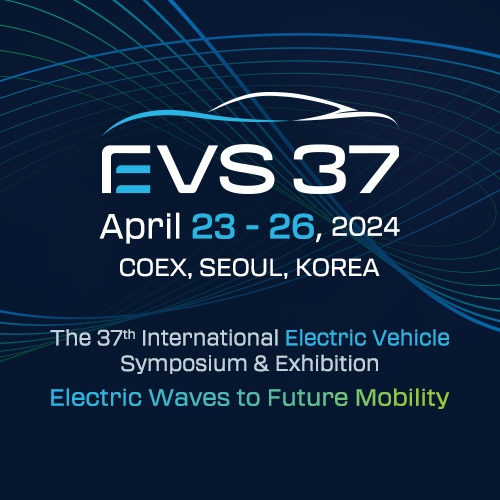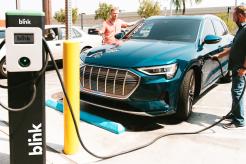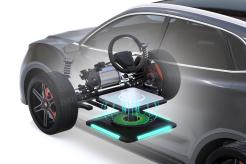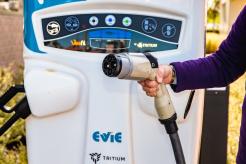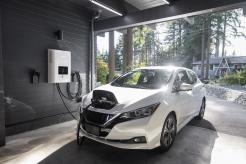State legislatures across the US are increasingly climbing aboard the EV bandwagon with various initiatives to encourage EV adoption. Here are some state legislatures promoting EV usage by businesses and individual residents.
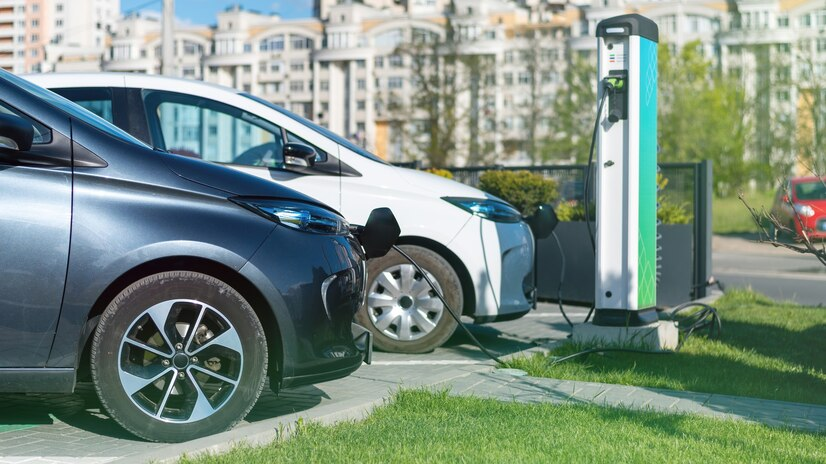
Image via Freepik
Arizona
In 2019, the Arizona state legislature adopted Senate Bill 2019, reducing the license taxes for alternative fuel vehicles (AFVs), such as EVs. AFV owners pay only $4 for every $100 in their vehicles’ valuation.

Image via Freepik
California
To help California’s trucking companies comply with the state’s Advanced Clean Trucks (ACT) regulation, the California Air Resources Board provides vouchers to lower the cost of purchasing electric or hybrid fleet vehicles. These vouchers, ranging from $2,000 to $315,000, should help promote EV usage among the state’s many commercial fleets.
California didn’t stop there. Light-duty vehicle owners can also receive help in transitioning to electric vehicles. The state’s Clean Vehicle Rebate Project (CVRP) provides light-duty vehicle buyers with rebates ranging from $750 to $4,500. And, thanks to another state program, EV buyers who are also homeowners can receive special financing to install EV chargers on their property.
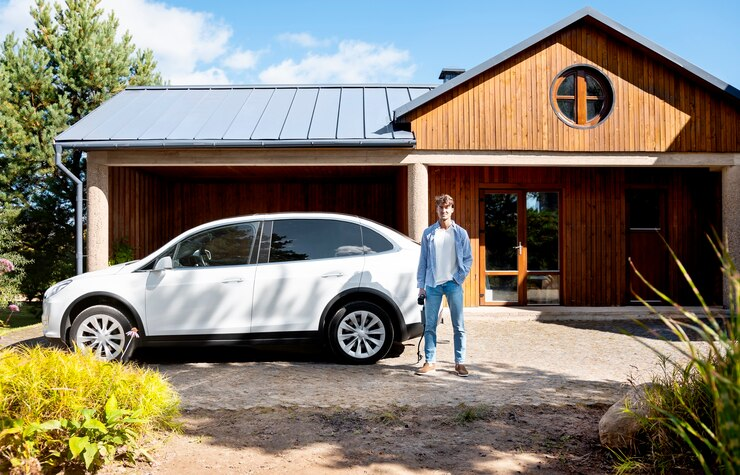
Image via Freepik
Colorado
Colorado’s 2019 House Bill 1159 gives EV buyers a generous income tax credit. This tax credit applies to light-duty EVs, electric trucks, and medium- and heavy-duty electric trucks.
Connecticut
The state’s aptly named CHEAPR program provides EV or hydrogen FCEV buyers or lessees with a rebate of up to $5,000. Purchasers who meet specific criteria, including low-income buyers, also might qualify for an additional rebate. Used EV buyers, too, can be eligible for these rebates.
Connecticut’s state government has also contacted trucking companies, providing them with funding to replace diesel trucks with electric vehicles. Drawing funds from the state’s Diesel Emissions Mitigation Program, this program should encourage EV adoption among fleet owners.
Delaware
Like Connecticut, Delaware also provides EV and other AFV buyers with rebates when they purchase an electric or hybrid vehicle. Amounts range between $1,000 and 2,500, awarding fully electric vehicles the higher amount.
The state also provides rebates for charging station owners who purchase new Level 2 charging stations. These rebates vary by type of charging station, with commercial stations receiving 75 percent of the installation costs and 90 percent for multifamily, nonprofit, or government installations.
The Delaware state government also provides kilowatt-hour credits for retail customers who hook their EVs to the grid in a vehicle-to-grid setup. In a vehicle-to-grid configuration, an EV can help to power the electrical grid by allowing an electricity provider to use its excess electrical energy during peak usage times.
Florida
Through its statewide Statute 163.08, Florida’s lawmakers authorized local governments to assess taxes to fund property improvements, including installing EV charging stations. To receive funding, property owners need to apply to their local governments. These local governments also offer financing agreements to help installations get off the ground.
Georgia
The state of Georgia provides an income tax credit for companies that have purchased medium- and heavy-duty vehicles for their fleets on or after July 1, 2015.
Hawaii
Hawaii’s Statute 269-72 requires the state’s public utilities commission to provide rebates to applicants who install new EV charging equipment or upgrade older facilities. Rebates range from $3,000 to upgrade an existing Level 2 station to $35,000 to install a new DC fast-charging station. The state caps rebates for multiple installations at $500,000 per fiscal year.
Idaho
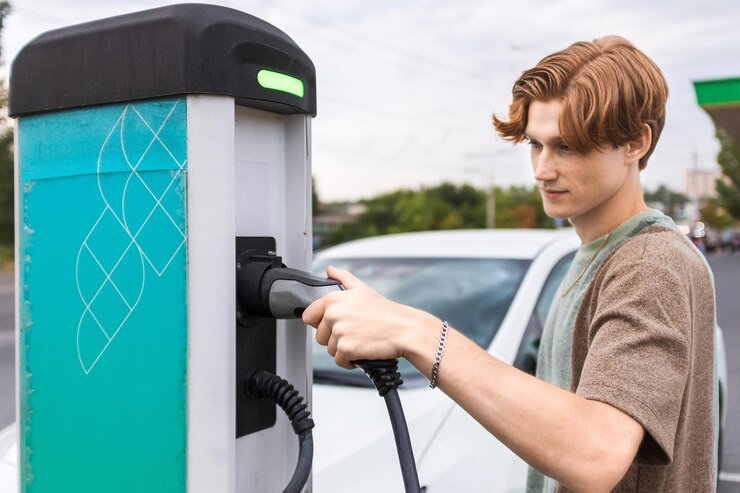
Image via Freepik
This largely rural Western state has implemented a program that offers cost-shared funding for companies that install DC fast chargers along state highways. The state legislature also enacted Statute 39-116 B, which exempts electric and hybrid vehicles from their required inspection and maintenance schedule.
Illinois
Like Idaho, Illinois exempts EV owners from annual inspections. It also exempts EV fleet owners with ten or more vehicles from the state’s yearly registration fees. Illinois also encourages the state’s school districts to adopt EV buses by reimbursing them to retrofit gasoline-powered buses with AFV powerplants.
Indiana
Like its neighbor Illinois, Indiana also designates funds to retrofit gas-burning school buses with AFV powerplants. However, Indiana has expanded its funding to include purchasing actual replacements for gasoline-powered school buses. The state also offers the same program to shuttle and public transit buses and medium- and heavy-duty trucks.
Iowa
Iowa’s Department of Transportation will help fleet owners replace medium- and heavy-duty vehicles with AFV ones. The program also helps fund retrofits in existing fleet vehicles with more environmentally friendly AFV powerplants.
Louisiana
Louisiana’s legislature enacted Statute RS 47:6035, providing vehicle owners with an income tax credit that covers 30 percent of the cost of installing AFV fueling equipment, including EV charging stations. The state also provides a 10 percent tax credit for buyers of new AFVs up to $2,500.
Maine
Funded by Volkswagen’s Environmental Mitigation Trust and enacted by the Maine legislature, the Efficiency Maine program provides individuals and government organizations rebates for purchasing or leasing hybrid or all-electric vehicles. Amounts vary by income and type of vehicle purchased or leased. The maximum rebate for an all-electric vehicle is $3,000, while hybrid vehicle purchasers can qualify for up to $1,500.
In addition, the state’s legislature also exempts entities that only provide electricity for charging EVs from public utility regulations.
Maryland
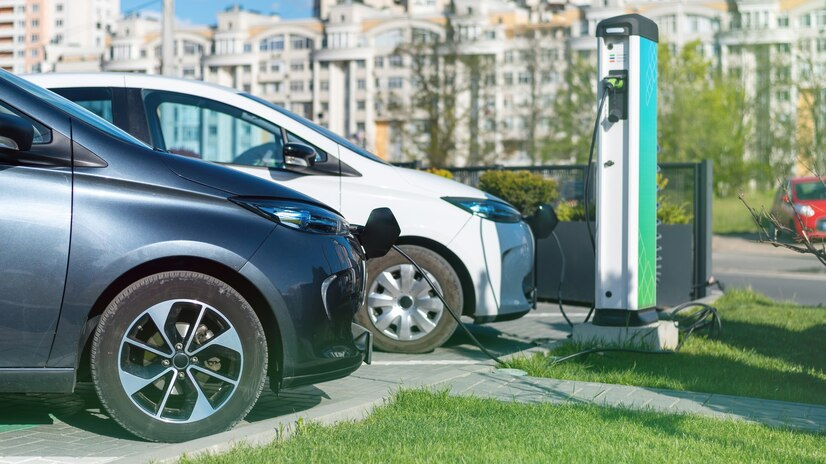
Image via Freepik
Passed on April 10, 2023, and approved by the governor on May 8, 2023, Maryland’s HB0834 required the state’s Public Service Commission to expand their EV pilot program, permitting electric companies to install electric vehicle charging stations in multifamily housing developments in underserved areas of the state. The bill also required participating companies to ensure that the EV charging stations in their network adhere to strict uptime standards so that these communities had access to dependable charging options.
Maryland exempted zero-emission vehicles, such as EVs, from mandatory emissions inspections. In addition, the state has implemented a program to plan for, install, and operate a network of publicly accessible DC fast-charging stations and other alternative fueling options.
Massachusetts
In November 2022, the Massachusetts legislature passed the Economic Development Bill (H. 5374). Among other state economic growth initiatives, the bill contained a provision to allocate $100 million to promote EV adoption and develop EV charging infrastructure.
The state also provides grants to private and public organizations to help them integrate AFVs and supporting infrastructure into their fleets. Other EV-related initiatives include rebates to state residents who purchase EVs and other zero-emissions vehicles and grants for public-access EV charging facilities that purchase and install Level 2 chargers with at least 12 hours’ customer access.
Michigan
One of the earliest states to offer AFVs an exemption from the state’s emissions inspections, Michigan passed the Natural Resources and Environmental Protection Act back in 1994. This exemption does not include hybrid vehicles, however. The law covers only vehicles whose “only fuel source [is] an alternative fuel,” such as EVs and hydrogen fuel cell vehicles.
Minnesota
Minnesota’s Toll Credit Pilot program provides a one-time credit for EV drivers using the state’s MnPass toll option. Hybrid drivers receive a $125 credit, while all-electric vehicle drivers are eligible for a $250 credit. In addition, the state awarded school districts that replaced diesel vehicles with electric school buses with grants up to the lesser of 75 percent of the district’s total project costs or $275,000.
Missouri
Like many other states, Missouri exempts EVs from their mandatory emissions inspection program. The state also participates in the National Electric Vehicle Infrastructure (NEVI) program, distributing $98.9 million to public and private organizations that install and maintain EV charging infrastructure up to 80 percent of each project’s total costs.
Montana
Known for its clean air and wide-open spaces, this Western state tries to keep it that way with two key EV initiatives. The first initiative provides bus fleets with grants to replace their medium- and heavy-duty buses with electric or hybrid ones. In addition, the state legislature enacted Code 15-30-2320, making both individuals and businesses eligible for income tax credits for 50 percent of the costs they incur when they convert fossil-fuel-burning vehicles to cleaner fuels, including electricity.
Nebraska
Nebraska’s Energy Office provides borrowers with low-cost loans of up to $500,000 for a variety of energy-saving initiatives. These projects can include replacing fossil-fuel-burning vehicles with AFVs, purchasing AFVs, converting conventional vehicles to alternative fuels, such as electricity, and the purchase and installation of AFV fueling infrastructure, including EV charging stations and equipment.
Nevada
Nevada has several initiatives to encourage EV adoption among both public and private entities. For example, the state’s Senate Bill 299 provides school districts with grants that cover 75 percent of the costs of purchasing electric school buses or installing charging stations on their property.
Like other states, Nevada also exempts most AFVs from emissions inspections for at least the first five model years. Hybrids, however, must undergo testing after that time.
New Jersey
Among other initiatives, New Jersey‘s Statute 54:32B-8.55 exempts zero-emission vehicles from the state’s state and use tax. The state’s Department of Environmental Protection also provides public and private organizations with grants that cover the costs of EV charging infrastructure at various facilities.
Additionally, the state’s Board of Public Utilities offers residents a rebate of up to $5,000 when they purchase or lease new EVs priced at $55,000 or less. Drivers who choose to go electric will also save 10 percent on their toll rates.
New Mexico
New Mexico’s Statute 13-1B-1 established the Alternative Fuel Acquisition Revolving Loan Program, which provides loans to government agencies and educational institutions that purchase electric and other AFVs. Additionally, the state’s House Bill 233 offers grants for organizations that develop better technology for EV charging systems and other grid modernization applications.
New York
The Empire State offers a wide variety of programs to promote EV usage. These initiatives include a rebate of up to $2,000 for new EV purchases or leases and rebates of up to $4,000 per charging port for public and private organizations that install Level 2 chargers at their facilities.
New York businesses and other organizations that purchase heavy-duty AFVs or alternate-energy school buses are eligible for vouchers that cover 80 percent of the cost of battery-powered school buses or other public transportation vehicles, up to 95 percent of the cost of an all-electric truck, and 90 percent of the purchase costs of hybrid trucks.
The state provides AFV fueling infrastructure providers with an income tax credit of up to $5,000 for installing charging stations and other clean fueling options. Additionally, New York exempts EVs from emissions inspections and allows them to use HOV lanes on the Long Island Expressway without an occupant limit.
North Carolina
Like a growing number of states, North Carolina exempts EVs from emissions inspections. The state also allows EVs to use HOV lanes without a limit on their occupants.
North Dakota
North Dakota’s Department of Environmental Quality (NDDEQ) provides businesses and other organizations with grants to help them retrofit or replace medium- or heavy-duty vehicles with AFVs. Non-government parties can receive up to 38 percent of the project costs, while government agencies can use the grants to cover up to half the expenses. In addition, the grants can also cover 15 percent of installation costs for EV charging stations or other AFV fueling infrastructure.
Ohio
This Midwestern state, like so many others, exempts EVs from vehicle emissions inspections. However, they must first submit to a one-time visual inspection. Ohio also offers grants for organizations that undertake clean transportation projects.
Oklahoma
Oklahoma’s Alternative Fueling Infrastructure Tax Credit program provides businesses that install alternative fueling infrastructure with a tax credit that covers up to 45 percent of the costs. In addition, the state has applied part of its Volkswagen Environmental Mitigation funding toward supporting projects to replace or retrofit heavy-duty vehicles’ powerplants with AFV models.
New EV buyers, too, can receive income tax credits of up to $50,000, depending on their vehicle’s weight. Owners of passenger vehicles weighing 6,000 pounds or less can receive up to $5,500, while heavy-duty vehicle purchasers could earn the maximum credit.
Oregon
With rebates of up to $2,500 for people who purchase or lease an EV, Oregon’s state government is getting serious about the benefits of clean energy. To alleviate the high initial purchase cost for lower-income buyers, the state has increased the rebate amount for residents who meet income requirements.
Pennsylvania
Pennsylvania’s state government has implemented several programs to help the state’s residents make the transition to cleaner-powered vehicles. The state’s Alternative Fuels Incentive Grant (AFIG) initiative assists companies and other organizations working on clean energy technologies by providing financial assistance.
In addition, the state assists its residents in purchasing plug-in hybrid vehicles, EVs, and hydrogen fuel cell-powered vehicles, with amounts varying by vehicle type. Low-income state residents can receive an added rebate of $1,000.
To fuel the growing number of EVs on the state’s roads, Pennsylvania set aside part of its Volkswagen Trust funding to fund DC fast-charging projects on its major transportation corridors. Additionally, the fund will also provide rebates for organizations that install Level 2 chargers at their facilities.
Rhode Island
Rhode Island’s state government put its Volkswagen Environmental Mitigation funds to work through its Electrify Rhode Island program. Electrify Rhode Island provided incentives for organizations that installed Level 2 and DC fast charging stations at government facilities, multi-unit housing developments, workplaces, and other publicly accessible areas.
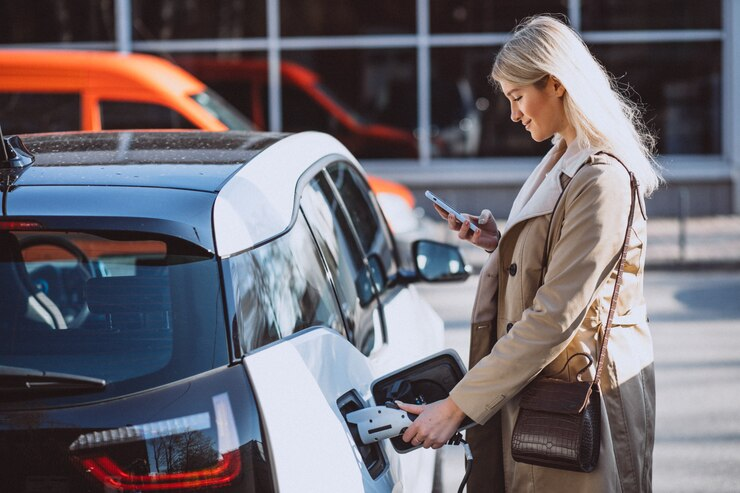
Image via Freepik
Rhode Island also exempts EVs from mandatory emissions inspections. However, unlike some states, EVs must still complete safety inspections.
South Carolina
Enacted into law in 2016, the South Carolina Distributed Energy Resource Program allows public electric utilities to pursue cost recovery for programs that include load management technologies or distributed energy resources, including EV charging facilities. Applicants must state the programs’ basic elements and the benefits they will provide residents.
South Dakota
This Midwestern state uses its Volkswagen funds to award grants to school districts that convert diesel engines in their bus fleets to lower-emissions powerplants, including battery electric vehicles (BEVs). The grant also covers purchases of new buses, shuttles, and other transit vehicles. Zero-emissions vehicles qualify for the largest percentage grants – 45 percent of the conversion cost.
Tennessee
Tennessee’s Department of Environment and Conservation (TDEC) partnered with the Tennessee Valley Authority (TVA) to create a statewide network of EV fast charging stations. When finished, the network should have 40 charging stations spaced approximately 50 miles apart over the state’s major highways.
In addition, the state government used its Volkswagen Environmental Mitigation Trust money to help fund organizations that replace diesel-powered buses and Classes 4-8 trucks with AFVs, including electric and hybrid vehicles. Powerplant conversions from diesel to alternate fuel types also qualify for these funds.
Texas
The Texas state government has put three major programs into place to encourage EV or lower-emissions vehicle adoption. First, the state offers rebates of up to $5,000 for individuals who lease or purchase a light-duty EV. The state’s Texas Emissions Reduction Plan (TERP) also provides incentives to organizations that undertake emissions-reduction projects, including EV charging infrastructure installation.
Texas, too, received funding from the Volkswagen Environmental Mitigation Trust. It funneled those funds into a program to replace diesel-burning heavy-duty vehicles with lower-emissions models, such as EVs. Powerplant conversions into cleaner fuel sources also qualify for these funds.
Utah
Like many states, Utah exempts EVs from emissions inspections and allows them to use HOVs unfettered by the number of occupants. The state also provides grants to businesses that convert their diesel-burning vehicles to AFVs.

Image via Freepik
Utah’s state government also offers an initiative for workplaces that install DC fast charging infrastructure or Level 2 chargers. The grant, which covers 50 percent of purchase and installation costs, is available to commercial businesses, as well as government and nonprofit organizations.
Vermont
The Vermont state legislature provides several incentive programs to promote EV and other AFV usage among its income-qualified residents. These programs include:
- Funding for individuals who purchase or lease a new plug-in EV
- An incentive program that supports residents who buy fuel-efficient used vehicles, including used EVs
- Incentives of up to $5,000 for Vermont residents who scrap older fossil-fuel vehicles and replace them with more environmentally friendly vehicles
- Funding to support new e-bike purchases
Additionally, the state government provides funding for installing EV charging infrastructure in multi-unit housing developments and other publicly accessible locations.
Virginia
Virginia joined a long list of states exempting AFVs, including EVs, from their emissions inspection requirement. It also allows EVs to sidestep HOV lane occupancy requirements.
But that’s not all. The state plans to use its NEVI funding to build EV charging stations along eight alternative fuel corridors by 2028, maintain them in optimum working conditions, and deploy charging stations in rural areas and disadvantaged communities as well as in more heavily populated and well-to-do communities.
Washington
To encourage zero-emissions vehicle adoption, Washington State’s Department of Transportation (WSDOT) rolled out a program to award grants to companies and other entities that install and maintain EV charging infrastructure and hydrogen fueling stations along its major highways. The WSDOT also funds transit authorities that electrify their fleets and provides tax credits for businesses that purchase AFVs and install AFV fueling infrastructure.
In addition, the state provides EV owners and EV charging infrastructure businesses with a sales and use tax exemption, provided that they have purchased the vehicles or charging stations after August 1, 2019. Like other states, Washington offers an exemption from state emissions inspections. Some plug-in hybrids, too, qualify for the exemption, provided they have a 50 MPG fuel economy rating.
Wisconsin
Wisconsin wisely put its Volkswagen trust funds to use in several grant programs, including one to fund construction of EV charging facilities. In addition, the state helped commercial fleets transition to alternative fuel sources, including battery-powered electric vehicles.
Wyoming
In 2022, Wyoming received $3.9 million in NEVI funding. State authorities project that the state will get $23.96 million in all during the following four years. They plan to use the funds to purchase, install, and maintain EV charging infrastructure along the state’s interstate and other major highways.
The Future Looks Bright for EV Adoption Across the US
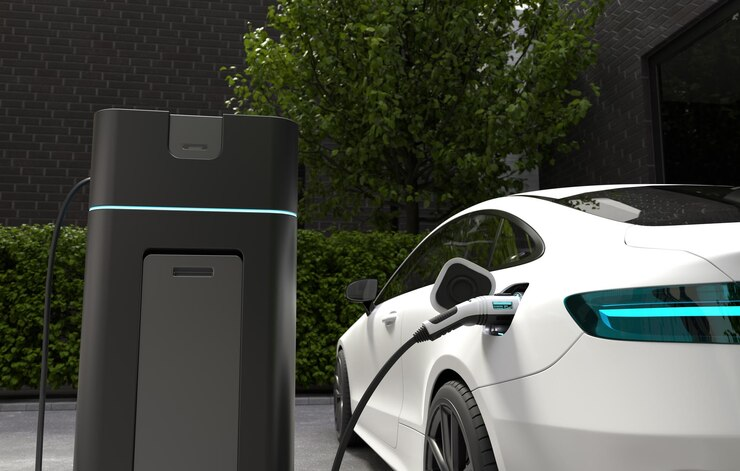
Image via Freepik
With these state legislatures’ initiatives and likely more on the way, EV adoption should increase across the US. As US citizens discover the savings they can realize when they exchange their gas-guzzling vehicles for a more economical – and eco-friendly – model, EVs will soon become Americans’ vehicles of choice.
Learn More About EV-Friendly Legislative Developments at the EV Charging Summit & Expo
Want to learn even more about local, state, and federal legislation promoting EV adoption? At the EV Charging Summit, you’ll hear about the latest developments on the legislative front. Register for your spot today!

